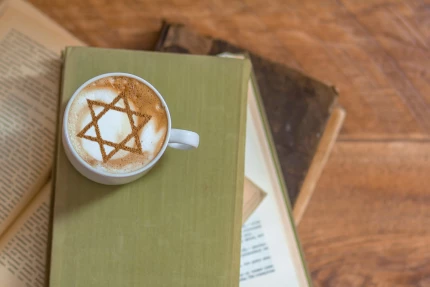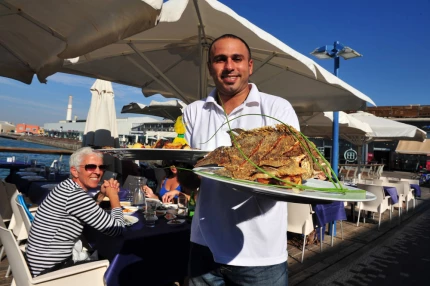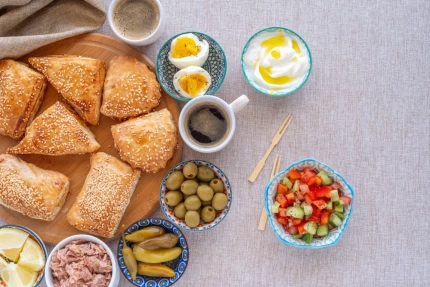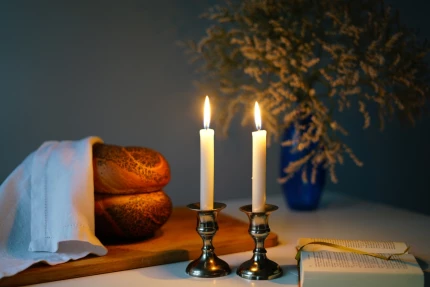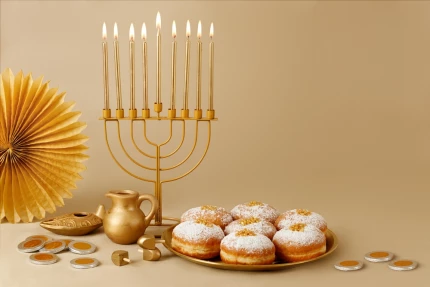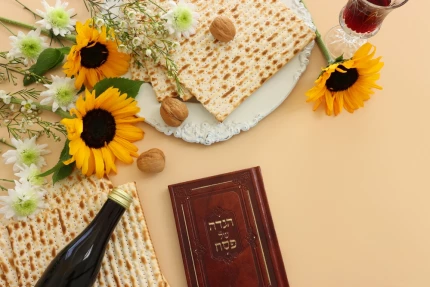Israeli Traditions
Israeli traditions are one of the underlying aspects that reflect the country’s multifaceted religious and historical narrative. Like an ornate mosaic, these long-established practices unite the lively Jewish community. From the ritual of sharing a matzah for Passover Seder to feeling the warmth of Cafe Hafuch in your palm and lighting the menorah for Hanukkah, these customs nurture unity and honor the nation’s extraordinary legacy. While some of the rituals may feel foreign to an observer, you can easily incorporate these joyful practices into your own world.
But what makes these customs so relevant across the time? Let us explore the kaleidoscope of everyday habits and religious observances that have shaped Israel’s identity and daily life of its residents.
an Israeli citizenship specialist
Everyday Traditions
In this sunny area, tradition is not something that one passively observes but something that one actively lives through using all five senses. You taste it in each bite, hear in each conversation, and feel in each interaction with cheerful people surrounding you. Below, we invite you to get an insight into three daily rituals, the quintessential traditions that transform ordinary moments of daily life into celebration of connection and community.
Weekly Shuk Shopping
Lucky to enjoy the sunshine all the year round, Israel boasts a variety of open-air markets (“Shuks” in Hebrew) that offer the visitors probably the most authentic cultural experience. When you enter a shuk, you plunge into a whirlpool of scents, colors, and sounds. Here, vendors’ calls mix with the aromas of street food and the chatter of visitors that bargain in many different languages.
Being more than sheer shopping venues, these authentic markets are community hubs where locals can catch up over cups of coffee while choosing the ingredients that will please even the pickiest of foodies. Shuk’s assortment ranges from farm-fresh meat and Mediterranean fish to seasonal fruit and artisanal cheese. And, of course, the shuk experience is never complete without partaking in Israel’s favorite sport of haggling: an exchange of offers and counteroffers that typically ends with a laughter.
The Israeli Coffee Break: Cafe Hafuch
From businesspeople striking deals to college students preparing for exams, Israel’s residents can savor Cafe Hafuch for many hours, thus making a much-needed pause on daily routines. In this nation that highly appreciates directness and cultivates tradition, the coffee break for Cafe Hafuch has become a treasured opportunity to enjoy open conversations and build new relationships.
The Tradition of Israeli Hospitality
Unlike in many other countries, unexpected guests are not just common but are welcomed with open arms and a heartfelt “hikansu!” (“Come in!” in Hebrew). You may be also greeted with a loaded plate and direct questions about your life story. Israel’s hospitality is loud and wholehearted, where strangers become family over a cup of coffee.
Cultural and Social Traditions
Israel’s social customs blend their ancient origin with the joy of the contemporary times, thus easily transforming ordinary days into vivid celebrations. From Yom Kef to the bureka run and Tu B’Av, these practices reveal Israel’s distinctive talent to infuse daily life with meaning. What is Israel’s secret? It lies in the culture that celebrates life.
Yom Kef: The Israeli “Fun Day”
While not on any official calendar, Yom Kef (translated as “Fun Day” from Hebrew) symbolizes Israel’s love of life and spontaneous celebrations. When the holiday of Yom Kef arrives, offices around the entire country empty out as employers swap spreadsheets for unforgettable bonding experiences.
The celebration of Yom Kef transforms the office hierarchy into laughter and shared memories. Its magic lies in its unpredictability: one morning starts in an ordinary way, then, all of a sudden, the entire office is heading to the beach for a volleyball game and a barbecue…all in the name of workplace camaraderie and joy!
The Bureka Run: A Morning Tradition
The morning bureka run ritual transcends mere food procurement. This sensory celebration marks the transition from the hectic Friday to a peaceful weekend, where local bakeries become social hubs and the first bite offers comfort and pure joy. The bureka run symbolizes the Israeli art of turning simple moments into small celebrations, where a pastry becomes a vehicle for connection and delight.
Tu B’Av: The Israeli day of love
Long before Valentine’s Day existed, ancient Israelites celebrated Tu B’Av as a joyous festival of romance. Originally documented in the ancient times as a day when young women danced in the vineyards while bachelors sought partners, modern-day Tu B’Av continues the spirit of its ancestor with events for singles and music festivals. Many couples choose this day for proposals, romantic gestures, and first dates, continuing the ancient belief in Tu B’Av’s blessing for relationships. Tu B’Av reflects Israel’s unique capability to reconnect with its ancient past while creating new dynamic practices.
Religious Traditions and Holidays
Whereas other nations usually mark time between their many secular holidays, Israelis find joy in the rhythm of Jewish religious occasions. Here, the celebration of Purim gives way to Pesach, which then leads to Hanukkah, and this cycle of religious celebration continues one year after another. Below are some of the most cherished rituals that are foundations of Israel’s national life.
Shabbat: The Day of Rest
Hanukkah: Festival of Lights
Passover (Pesach): The Exodus Celebration
Matzah, this iconic crispy bread, represents how the Israelites had to leave so quickly that their dough had no time to rise. The highlight of Passover is the Seder meal. It is not an ordinary dinner, but a storytelling experience using the Haggadah sacred book. Even secular Israelis celebrate Passover through hiking trips, music festivals, and new interpretations of the long-existing tradition.
Purim: Celebration of Deliverance
The Jewish holiday of Purim arrives like a gorgeous flower born after the quiet winter months. Schools start the celebrations weeks in advance with themed dress-up days, ranging from historical reenactments to creative pajama parties. Purim’s central ritual – the evening Megillah reading – offers a striking contrast as congregants listen to the ancient story of salvation. Neighborhood streets later become grounds for the festivals, with residents of all ages showcasing extraordinary costume creativity until late night.
But what exactly makes these customs so durable? Perhaps, it’s their power to transform the ordinary chore into a miracle: a coffee break into a moment of connection, a market run into a mix of haggling and humor, and a holiday into a nationwide celebration of joy. Most of all, these customs are a testament to Israel’s unique pace of life, where faith, family, and festivity are all connected.
an Israeli citizenship specialist
